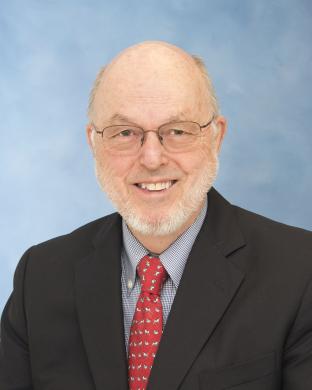Biography
Dr. Michael King received his B.A. in Physics from Harvard University in 1966 and a M.S in engineering from Northeastern University in 1970. Although trained as an engineer, Dr. King wanted to pursue a career in biomedicine and entered the Ph.D. program in Physiology and Biophysics at the University of Washington in Seattle. As a graduate student, his mentor was Albert Fuchs who introduced him to the oculomotor system and the excitement of single cell recording. After receiving his Ph.D. in Seattle (1976), he went to the Max Planck Institute for Hirnforschung in Germany where he learned cellular electrophysiology in the vestibular system with Wolfgang Precht.
Areas of Interest
Dr. King’s basic research is focused on the vestibulo-ocular reflex (VOR), a brainstem reflex that stabilizes vision by linking sensory cells in the vestibular labyrinth of the inner ear with the extraocular motoneurons in the brainstem that drive eye movements. This reflex is also the basis of common clinical tests to evaluate vestibular function in patients with inner ear vestibular disease. A second research focus, pursued collaboratively with colleagues in the KHRI, is aimed at examining the mechanisms by which ototoxic drugs or excessive noise can cause damage to the vestibular system. This is a public health issue as there is a correlation between hearing loss and vestibular dysfunction in elderly individuals that may be related to noise exposure and which may increase the risk for falling behavior.
Dr. King’s lab studies these problems using behavioral and electrophysiological approaches in animal models and clinical studies of patients with vestibular dysfunction.
Honors & Awards
- Max Planck Society Fellowship
- Fogarty International Fellowship for Collaborative Research
Published Articles or Reviews
J. Dits, W.M. King and J. Van Der Steen, Scaling of compensatory eye movements during translations: virtual versus real depth. Neuroscience 246: 73-81, 2013.
W.M. King, Getting ahead of oneself: anticipation and the vestibulo-ocular reflex. Neuroscience 236: 210-219, 2013.
ZunigaMG., Dinkes, RE, Davalos-Bichara M, Carey, JP, Schubert, MC, Walston J, Hughes, J., King, WM, Agrawal, Y., Association between Hearing Loss and Saccular Dysfunction in Older Individuals, Otol. Neurotol., 2012,
Shanidze, N. Kim, AH, Loewenstein, S, Raphael, Y. and King, WM. (2010). Eye-Head Coordination in the Guinea Pig II: Responses to Self-generated (Active) Head Movements. Experimental Brain Research:205:445-454.
King, W.M. and Shanidze, N. (2011). Anticipatory eye movements stabilize gaze during self-generated head movements. Ann NY Acad. Sci. 1233: 219-225.
King, W.M. (2011). Binocular coordination of eye movements – Hering’s law of equal innervation or uniocular control? Eur. J. Neurosci. 33: 2139-2146.
W. Zhou and W. M. King. (1998). Premotor commands encode monocular eye movements. Nature, 393: 692-695.


